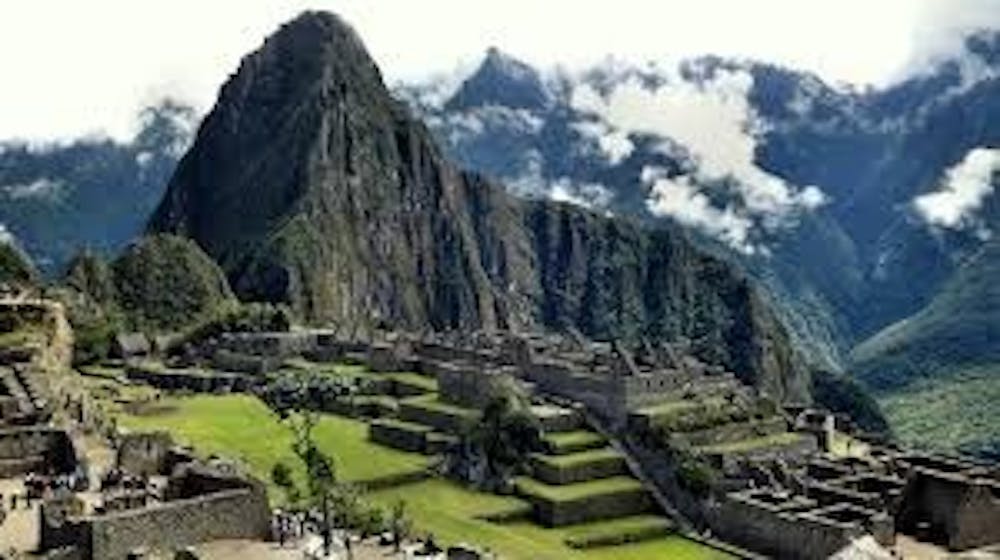Luis Miguel Castilla is the Peruvian Ambassador to the United States, which he characterizes as his country’s most important diplomatic post. He served as Peru’s Minister of Economy and Finance from 2011 to 2014 and has worked at the World Bank, the Development Bank of the Americas and the University of the Pacific in Lima.
He is also a Hopkins alumnus, having received an MA in 1993 and a PhD in 2001, both in economics.
On Tuesday, Ambassador Castilla returned to his alma mater, talking to an audience in the Sherwood Room of Levering about the liberalizing market reforms he championed in Peru. Later that day he gave a talk to the economics department.
“I used to listen. It’s going to be interesting to see my professors as the audience,” Castilla said.
Castilla spoke to the audience in Levering for half an hour, continuously hammering the importance of opening Peru’s economy and its government to scrutiny.
“We’re a country that respects the rule of law and respects investment,” Castilla said. “Even [in] our own constitution, we give equal treatment to foreign and domestic investment.”
Castilla worked in different roles in the Peruvian government under two presidential administrations, being named the Minister of Economy and Finance by President Ollanta Humala in 2011. Both administrations he served under are considered to the left of the political spectrum in Peru.
Castilla said that while both administrations had a social democratic outlook, they each saw the advantages in opening Peru’s economy and decreasing its sovereign debt.
“The right-left divide is less important today,” Castilla said. “[The administrations] are quite conscious that Peru has thrived under open policies and are quite cognizant of the costly burden of failed distortionary or excessive government regulations. So they both deepened market policies, but with an emphasis on the social area in the current government.”
Over the course of Castilla’s ministry, the Gross Domestic Product (GDP) of Peru increased from $170.56 billion to $202.6 billion, according to the World Bank. The rate of government debt to GDP decreased from 22.4 percent to 20.7 percent, according to the Peruvian Ministry of Economy and Finance.
Castilla pointed out how his country’s embrace of open markets protected Peru from relying too heavily on its natural resources, a trap he says other South American nations had fallen into.
“We are a country that is very rich in natural resources,” Castilla said. “We are the third largest reserve of copper in the world, the fifth largest reserve of silver and the sixth of gold... We are a net oil importer, so the collapse in commodity prices in oil, below $30 a barrel, has had a positive effect on our economy unlike countries such as Venezuela, Colombia or Ecuador.”
One of Castilla’s projects during his tenure as minister was to negotiate Peru’s entry into the Trans-Pacific Partnership (TPP), a multilateral trade agreement among 12 Pacific nations designed to lower trade barriers and tariffs and create a mechanism for settling investor-state disputes settlements (ISDS). The TPP has generated controversy, especially among the political left, for the secrecy involved in its creation and its potential effects on environmental and labor regulations, as evidenced by an anti-TPP protest led by Hopkins students on Friday.
Responding to an audience member’s criticism of the TPP, Castilla defended the benefits of the trade deal, arguing it would raise environmental and labor standards, lower barriers to trade and allow Peruvians greater access to the Pacific markets.
“We’re in the middle of South America,” Castilla said. “We’re a hub country with the busiest port and the busiest airports in South America, south of Panama. And as we try to integrate ourselves to Asia, despite all of its trouble, it’s going to be a gravity of growth [and] is a good thing.”
However, Castilla acknowledged the potential downsides of the TPP on his country.
“Trade in the long term is a positive-sum game, everyone wins. But in the transition it is a zero-sum game, which means there are winners and losers, and that’s a fact. If one tells you otherwise, they are being obscene,” he said.
Castilla said that the greatest problem facing Peru today a lack of sound institutions.
“When we had times of plenty, you were capable of living with growth constraints. As the world is changing and all the low-hanging fruits have already been picked, you really need to go and pursue policies that strengthen your institutions,” he said. “I’m talking about the judiciary branch, I’m talking about the police, I’m talking about the different levels of government and how effective they are... Peru is a country that has always been very successful in its track record because of good policies, in spite of weak institutions. And we need both good policies and strong institutions to be able to develop fully.”





